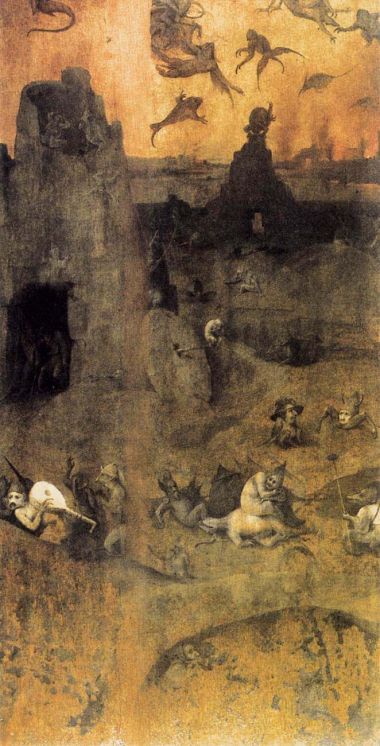Were there giants in Genesis? Why the Nephilim continue to fascinate us
In the build-up to the Great Flood, Genesis tells the story of how man became increasingly corrupt. This was a time when people lived for hundreds of years and Nephilim roamed the earth.
Nephi-what?

Squeezed in between a long list of Noah's ancestors and God's decision to "blot out man" from the land, there is Genesis 6:4. In this verse, sons of God are described as procreating with daughters of man. And the Nephilim are mentioned, described as "mighty men who were of old, the men of renown."
But who were they?
The Nephilim are often thought to be giants, because the earliest Greek translations rendered the word gigantes, "giants". However, the Hebrew Nephilim actually means "fallen ones".
The Nephilim are only mentioned in one other place in the Bible.
Numbers 13:3 mentions the Nephilim in reference to a group of people who were living in Canaan. They were intimidating due to their likeness to the "men of renown" and apparent size, making the Israelites feel like "grasshoppers".
The Bible is ambiguous. With only two mentions of the word, it's tricky to be sure who exactly they were, but – as ever – people have tried.
The Nephilim are the offspring of sons of God and daughters of man.
This bit is pretty explicit. The Nephilim are the offspring of sons of God and daughters of man. But who are the sons of God?
1. Fallen Angels?
The Nephilim are the offspring created of fallen angels and the daughters of men with 'sons of God', ie fallen angels. Although this cross-pollination of species might seem odd/impossible, angels do appear in human form elsewhere in the Bible and interact with them (eg Hebrews 13:2, Genesis 19: 15-16), and so it is conceivable that they might procreate. However, some have argued against this, quoting Jesus' statement that angels do not marry, while others still say that this statement was only referring to angels in heaven.
Jude 1:6 is also often quoted in support of angelic heritage: "And angels who did not keep their own domain, but abandoned their proper abode, he has kept under eternal bonds under the darkness for the judgement of the great day."
2. Descendants of Seth?
Or, these Nephilim might just be descendants of Seth, Adam and Eve's third son. In this theory, 'sons of God' refers not to the angelic order, but to men with great authority and power. Similar to the way you might address a King with "Your Majesty", sons of God could denote that these men were godly.
These godly men, however, did not take godly wives; they procreated with daughters of men, unbelievers. Thus, their offspring – the Nephilim – were the fallen ones.
3. Either/Or?
The difficulty in identifying who the Nephilim were and who the sons of God were means we can't be definite about what the story actually means. However, it's worth noticing that in almost every culture there are stories of powerful semi-divine beings or demi-gods who are a little bit more than human.
It's almost as though humanity wants to create another layer of divinity between us and God, which is more accessible and more comprehensible. It provides a hope that we might even be able to attain some sort of divinity ourselves by interbreeding with these creatures.
However, the Bible reveals these beings to be just as flawed and sinful as we are ourselves, or at least potentially so. There is only one standard of perfection which is God himself.
So, the answer to whether there were giants in Genesis is – boringly – there might have been, but we can't be sure. What is more interesting is what this fascination with the mystical-semi-divine creature reveals about us – we are looking for access to the divine.
But in Jesus Christ we have the only mediator we need – the only mediator there is – who gives us access to his Father.
"I am the way, and the truth, and the life; no one comes to the Father but through Me." John 14.6
Follow Florence Taylor on Twitter: @Flo_Taylor











